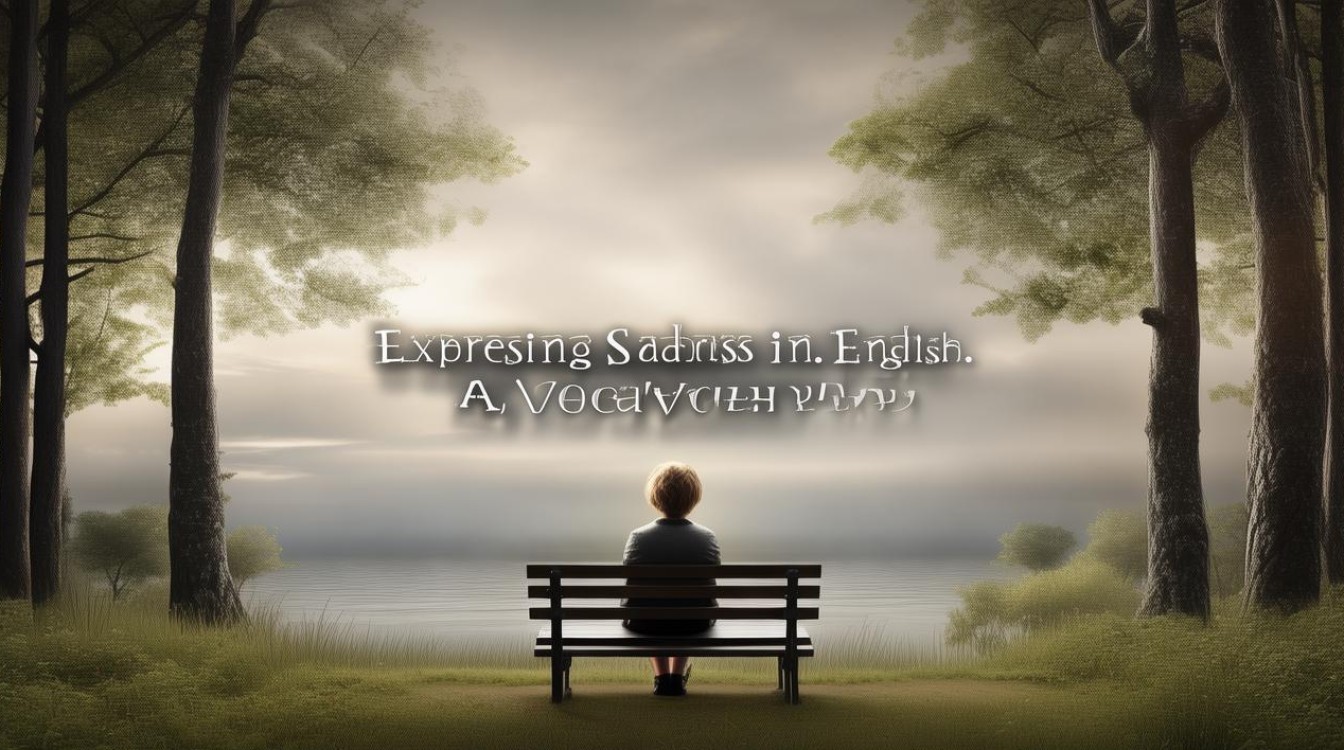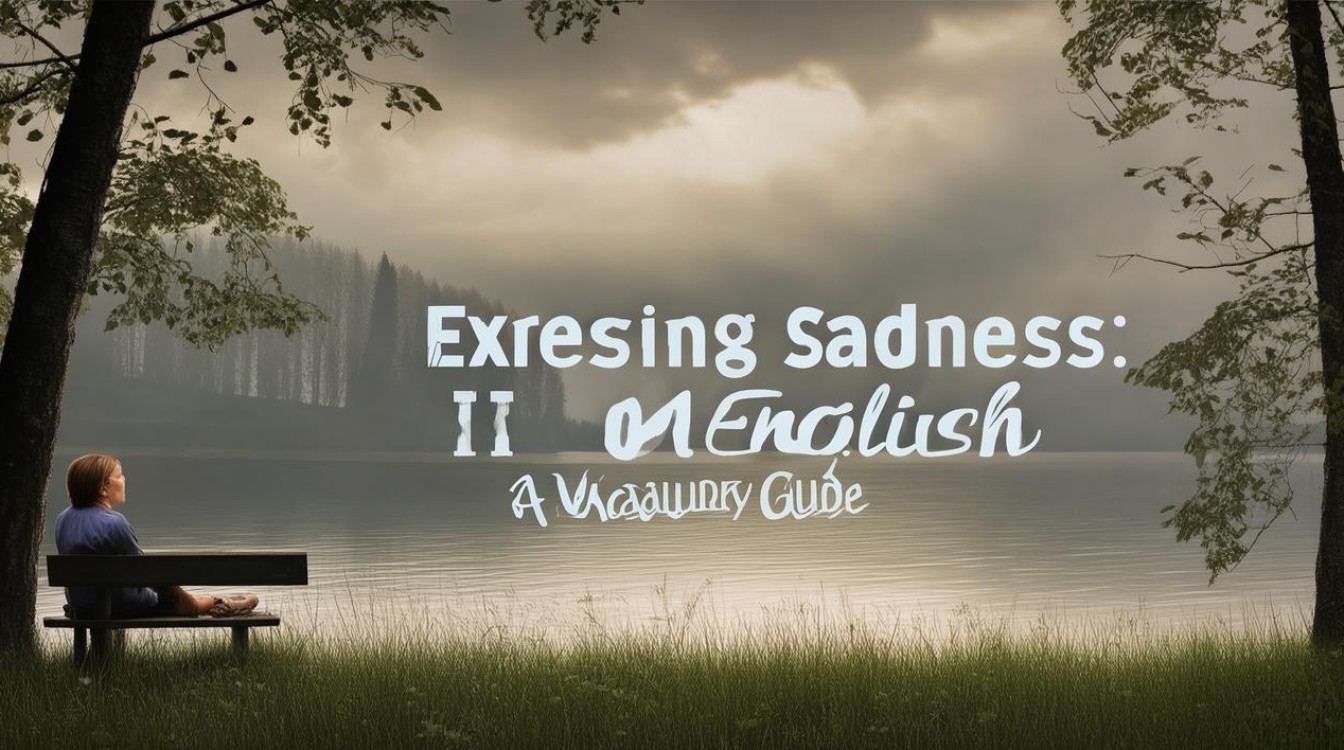Life isn’t always sunshine and rainbows. Sometimes, we feel down, disappointed, or even heartbroken. Having the right words to express these emotions can be incredibly helpful—whether you're writing in a journal, talking to a friend, or simply trying to understand your own feelings. This guide explores English words and phrases that capture different shades of sadness, helping you articulate emotions more precisely.

Common Words for General Sadness
-
Sad – The most basic term for feeling unhappy.
- Example: "I felt sad after hearing the news."
-
Upset – A mix of sadness and mild distress.
- Example: "She was upset when her plans got canceled."
-
Down – Informal, meaning feeling low or depressed.
- Example: "He’s been feeling down since his pet passed away."
-
Melancholy – A deep, lingering sadness, often with a poetic tone.
- Example: "There was a sense of melancholy in her voice."
-
Gloomy – Describes both a mood and an atmosphere of sadness.
- Example: "The rainy weather made everyone feel gloomy."
Words for Disappointment
-
Disheartened – Losing hope or enthusiasm.
- Example: "After failing the test, he felt disheartened."
-
Let down – Feeling betrayed or disappointed by someone.
- Example: "She felt let down when her friend forgot her birthday."
-
Crushed – Extreme disappointment, as if emotionally shattered.
- Example: "He was crushed when he didn’t get the job."
-
Dismayed – Sudden discouragement or alarm.

- Example: "They were dismayed by the sudden change in plans."
Words for Loneliness and Isolation
-
Lonely – A deep sense of being alone, even in a crowd.
- Example: "Moving to a new city made her feel lonely."
-
Forsaken – Abandoned or deserted, often with emotional weight.
- Example: "He felt forsaken after the breakup."
-
Isolated – Cut off from others, leading to sadness.
- Example: "Working from home left him feeling isolated."
-
Desolate – Extreme emptiness, often tied to grief.
- Example: "The empty house felt desolate after the funeral."
Words for Deep Sorrow and Grief
-
Heartbroken – Intense emotional pain, usually from loss or rejection.
- Example: "She was heartbroken when her long-term relationship ended."
-
Devastated – Overwhelmed by extreme sadness.
- Example: "They were devastated by the sudden death of a loved one."
-
Mournful – Full of sorrow, often related to grieving.
- Example: "The mournful music matched his mood."
-
Grief-stricken – Consumed by deep sorrow.
- Example: "The family was grief-stricken after the accident."
Words for Hopelessness and Despair
-
Despondent – Feeling extreme discouragement.

- Example: "After months of job hunting, he grew despondent."
-
Forlorn – Abandoned and miserable.
- Example: "The stray dog looked forlorn in the rain."
-
Bereft – Deprived of something meaningful, leading to emptiness.
- Example: "She felt bereft after her best friend moved away."
-
Defeated – A sense of failure and resignation.
- Example: "After countless rejections, he felt utterly defeated."
Expressions and Idioms for Sadness
Sometimes, single words aren’t enough. These phrases help convey complex emotions:
-
Feeling blue – A casual way to say you're sad.
- Example: "I’ve been feeling blue since the weekend."
-
Down in the dumps – Very depressed or discouraged.
- Example: "Ever since his project failed, he’s been down in the dumps."
-
At a low point – Experiencing deep sadness.
- Example: "After the divorce, she was at a low point."
-
Weight on one’s shoulders – Feeling burdened by sadness.
- Example: "Ever since the argument, there’s been a weight on his shoulders."
How to Use These Words Effectively
Understanding these words is one thing—using them naturally is another. Here’s how to incorporate them into writing and conversation:

-
Journaling: Writing about emotions helps process them. Try:
"Today, I feel melancholic. The gray skies mirror my mood." -
Conversations: Instead of just saying "I’m sad," try:
"I’ve been feeling disheartened lately because things aren’t going as planned." -
Creative Writing: Describing a character’s sadness? Use vivid words like forlorn or grief-stricken to create depth.
Final Thoughts
Emotions are complex, and sadness comes in many forms. Whether you're mildly upset or deeply heartbroken, having the right vocabulary helps you express yourself clearly. The next time you feel down, try using one of these words—it might make articulating your emotions a little easier.
Language is powerful. The more precisely we describe our feelings, the better we understand ourselves and connect with others. So, the next time sadness lingers, reach for these words and let them speak for you.

